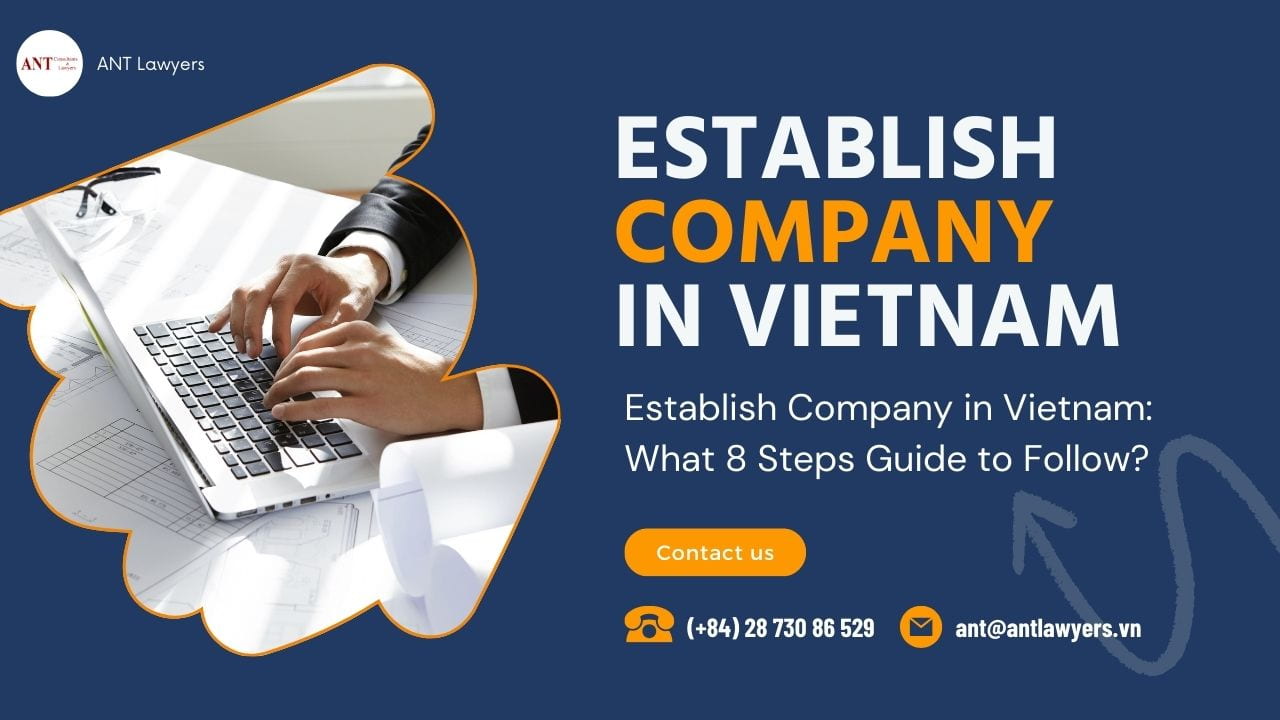Quick Tips for Foreigners to Set up Company in Vietnam and Comply?


Quick Tips to Set up Company in Vietnam and Comply?
Feel challenging to set up company in Vietnam?
For a foreigner to a country like Vietnam which opportunities avail for business, it is attempting to create a business to operate and snatch the chance. But after the first eagerness feeling of potential business to generate, after settling in, the entrepreneur might wonder, how difficult it is to set up company in Vietnam or how challenging the business environment in Vietnam for operating and doing business when dealing with administrative procedures from registering investment, setting up the company, complying with periodical reporting and tax declarations… If you are reading this and feeling so, you are not alone.


As a place with a favorable geographical position and plentiful labor resources, and growing consumer market, Vietnam is increasingly developing strongly, becoming a country attracting global investment among Southeast Asia countries. In order to carry out effective investment activities, foreign investors need to undertake research about the policies, investment incentives, legal requirements as well as the process and procedures for establishing a business in Vietnam. This will provide some quick tips for the fundamental considerations that international investors should consider if they have any ideas to chose Vietnam to make investment.
Investment to set up company in Vietnam is encouraged
An individual with foreign nationality or an organization established under foreign law could register investment and conduct business activities in Vietnam. Foreign investors are permitted to engage in any legal business, however, there are some specific industries that investors must meet the required conditions to be able to register investment. Some few areas that foreign investors are not permitted to conduct business in Vietnam for the reason for national security or state monopoly.
What license is required to set up company in Vietnam?
According to Vietnam law, an investor whom wishes to establish a company in Vietnam must obtain an investment registration certificate from an authorization agency.
The normal time limit for issuance of the Investment Registration Certificate (IRC) will be 15 days from the date of submission of valid dossier for an investment project. But it is important to build in the time for preparing the proper documents i.e. application, financial report, bank balance, personal documents and many of such documents require apostille, or notarization and legalization and translation into Vietnamese before being submitted.
Vietnam law does not require a minimum capital to set up a business, except for conditional investment or business lines. But investors are obliged to contribute capital according to the schedule stated in the IRC and that the government authority has the right to request the investor to explain the business plan to their satisfaction based on the proposed investment capital.
In case the investor cannot contribute enough capital according to the committed time limit, the competent authority may apply sanctions, including revocation of the IRC or the investor has to adjust the IRC to reflect the actual contribution of investment. Once having the IRC, the investor then request to obtain Enterprise Registration Certificate (IRC) which takes 5 days from the date of submission of valid dossier for business establishment to complete the business setting up process.
After licensing, what to do to comply?
Now, after have a business set up in Vietnam, the enterprise starts to conduct business i.e. sign contract to lease space officially, hire people, enter into business transactions to buy and sell services or products.
To make it legally bound, the documents needs to be signed and sealed. Then the question is how to have a seal? Back in the past, it was more challenging to have the seal made for an enterprise after being established because it was managed by the Public Security authority.
There has been a discussion between legislators and business experts about totally removing the seal being stamped on the legal documents in Vietnam because the signature of the legal representative is most important. Over the time, the once strict law governing the seal issuance has been loosen up. But in Vietnam the seal is still very important that together with the legal representative signature it show the official notice i.e. a decision by the legal representative of the business to terminate a labour contract; or an obvious approval of an entity to a transaction it enters to hire a construction company for building a factory.
Depending on the terms in the company’s charter, the investor has the right to make more than one seal to use. The enterprise must send a notice to the business registration office where its head office is located for publication on the National Business Registration Portal before using, altering, destroying, or changing the number of seals. The seal can be used starting on the day the notification process has been finished and the seal sample has been uploaded on the National Business Registration Portal for verification purpose.
Remember to declare and pay taxes in Vietnam
During the operation of the business after being started, the investor needs to pay attention to tax obligations, which is very important in most jurisdictions except in tax heaven countries. But Vietnam is not on the exemption list. Every company needs to submit tax declaration. Every year, the business will need to pay a number of different taxes and fees such as license fees (based on registered charter capital); Corporate Income Tax (CIT) when the company makes profit; declare and pay Value Added Tax (VAT) for sold goods or services, on behalf of individual declare and pay Personal Income Tax (PIT), or in some cases export tax and import tax, tax on lands.
Remember to submit mandatory reports in Vietnam
In addition, foreign investor also needs to fully comply with the investment project reporting regime in accordance with the law. These reports will be made periodically (monthly, quarterly or annually) on such contents as: implemented investment capital, business investment results, information on labor, employed foreign workers, reports on environmental protection… Complying with the implementation of tax payment obligations and periodically reporting to ensure timely implementation as prescribed will help the company avoid unnecessary risks such as administrative sanctions, business suspension, penalties that could impact the business.


What Important Step-by-Step Guide to Establish Company in Vietnam?


10 Questions to Ask Before Setting up Company in Vietnam


What Are the Advantage of Foreign Investors in Setting up Business in Vietnam?
How to set up a Joint-Stock Company in Vietnam
Vietnam Company Formation. How to proceed?
5 Powerful Steps to Register Company in Vietnam: Seizing Opportunities in a Growing Market
From Compliance to Excellence – Corporate Governance Lawyers in Vietnam
How ANT Lawyers Could Help Your Business?
You could learn more about ANT Lawyers Foreign Investment Practice or contact Our English speaking solicitors in Vietnam for advice via email ant@antlawyers.vn or call our office at +84 28 730 86 529
Recent Posts
7 Essential Truths to Open an Indirect Investment Account in Vietnam and Grow with Confidence
Do you want to invest overseas into Vietnam? Do you want to open an indirect…
5 Crucial Facts About ESG Laws in Vietnam That Could Save Your Business and Reputation
The Business World Is Changing Fast Rules are shifting. Expectations are rising. Eyes are watching. …
7 Powerful Reasons Why ESG Compliance in Vietnam Will Win You Trust, Growth, and Global Clients
Trust matters. Today, more than ever. Across industries, many companies are now being asked. directly…
7 Bold Reasons Why Tokenization in Vietnam Could Transform Your Future
Change is coming. Quietly. Digitally. Rapidly. Let’s imagine the situation, which assets are no longer…
Vietnam P2P Lending: 5 Bold Reasons Why Decree 94/2025 Could Empower Millions or Backfire?
A New Financial Chapter Begins in Vietnam One person lends. Another borrows. It’s that simple.…
5 Essential Lessons from Risk Management in Digital Assets in Vietnam: Protecting Trust in a Digital World
Trust Is the Real Currency Money can be lost. Tokens can vanish. Platforms can crash.…


